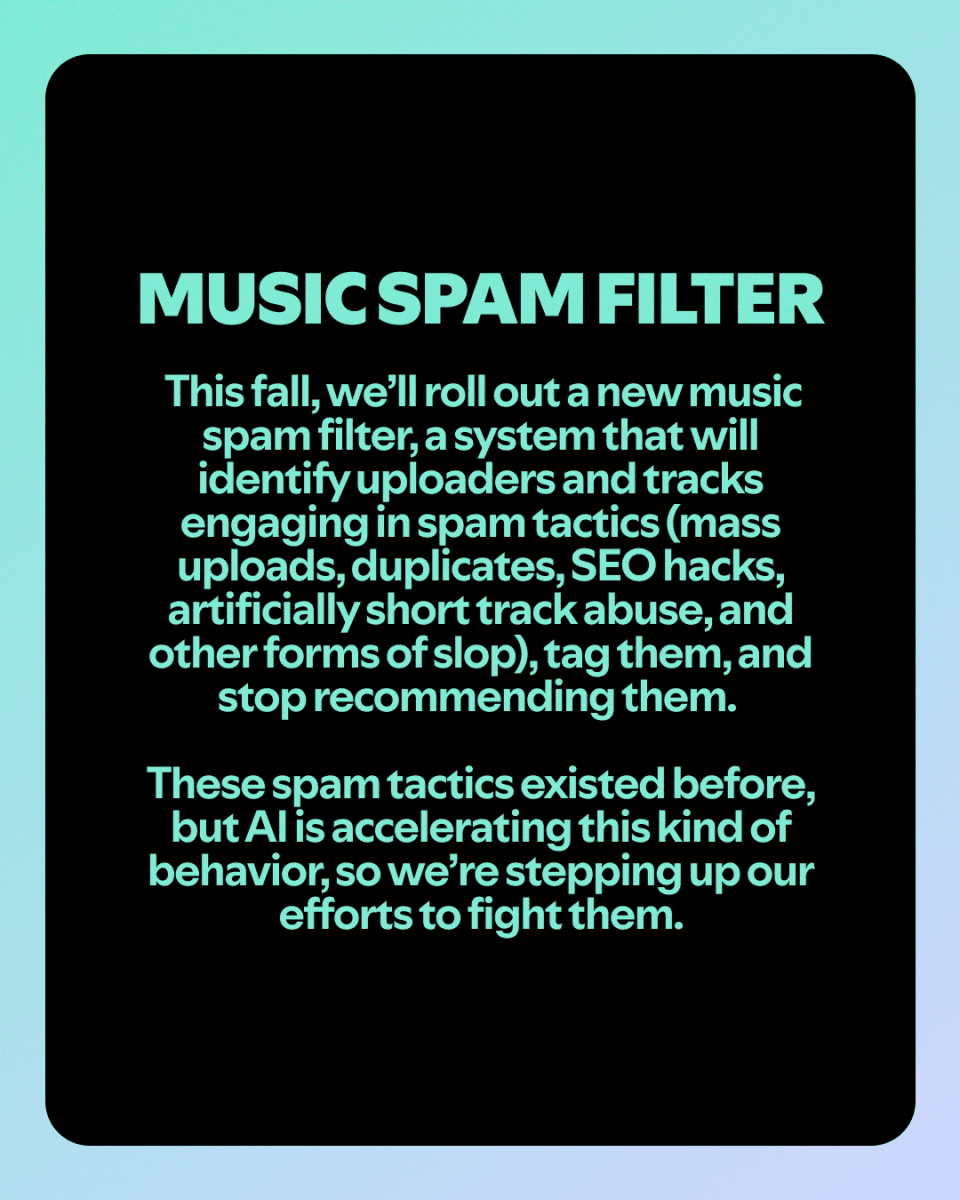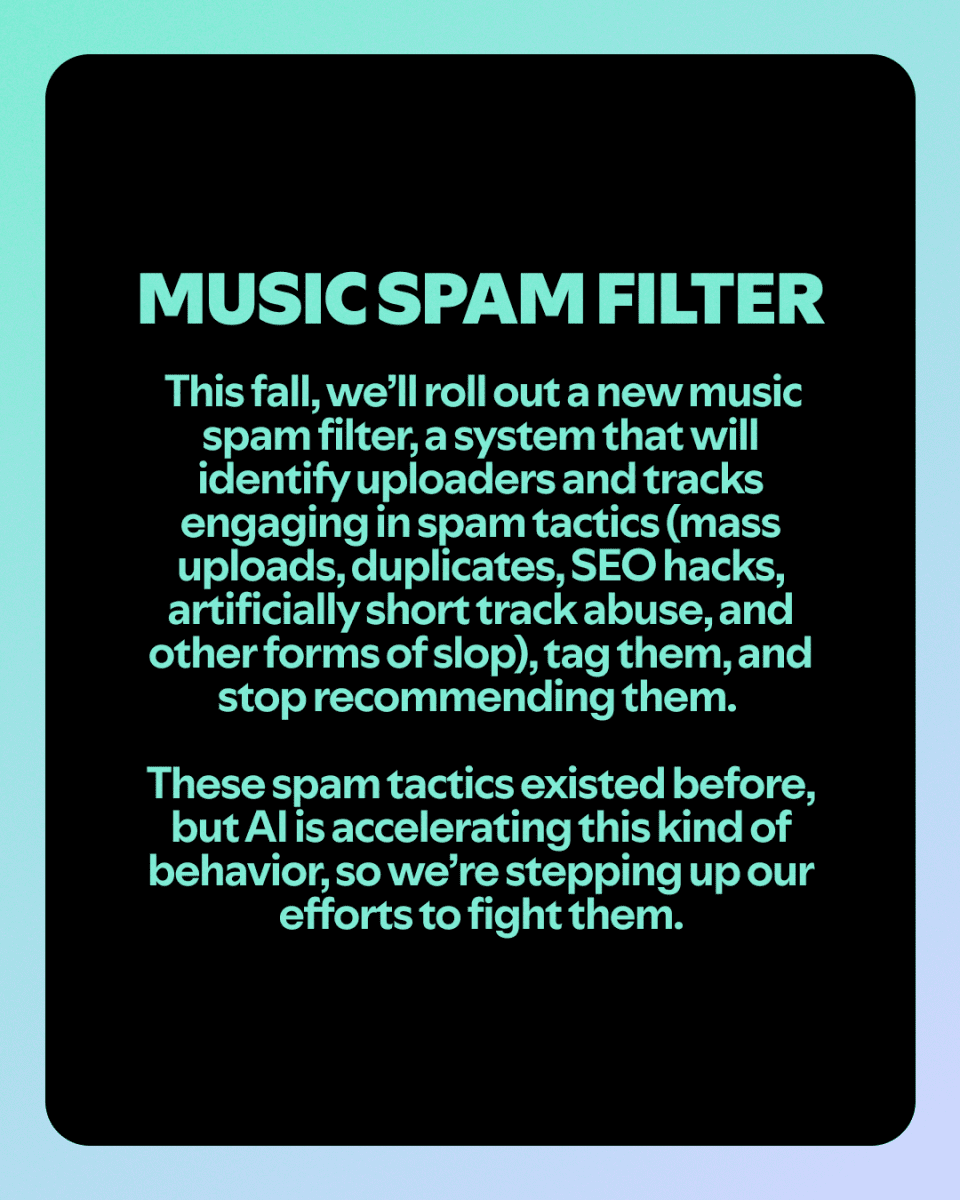







































Spotify to tackle AI music spam and deepfakes with new policy overhaul
 AI
AI
 CS
CS
 BTC
BTC
 STND
STND
 ZER
ZER
In a move to safeguard the integrity of its platform, Spotify has announced a series of new updates to its artificial intelligence policies. These changes are designed to combat unauthorised AI voice clones, low-quality spam, and the lack of transparency in AI-generated music.
According to Spotify, the updates emphasise a dual approach: embracing legitimate, responsible AI use while aggressively protecting artists and listeners from malicious actors.
The streaming giant’s policy overhaul comes at a critical time as Sam Duboff, Global Head of Marketing and Policy at Spotify, acknowledged the widespread use of AI in music.
“We know the use of AI is going to be a spectrum, with artists and producers incorporating AI in various parts of their creative workflow. This industry standard will allow for more accurate, nuanced disclosures. It won’t force tracks into a false binary where a song either has to be categorically AI or not AI at all,” he noted.

Spotify Adopts the DDEX Industry Standard for Music Credits
In addition to the new policies, Spotify is prioritising transparency in its catalogue by integrating the upcoming DDEX (Digital Data Exchange) industry standard for labelling AI music. This move addresses the spectrum of AI use in music production, moving beyond a simple “AI or not AI” categorisation.
Under the DDEX system, labels, distributors, and music partners will be tasked with submitting standardised AI disclosures directly within a track’s credits.
This framework moves beyond a simple binary choice, allowing for nuanced and detailed information about how AI was utilised either for AI-generated vocals, instrumentation, or post-production.

“We know the use of AI is going to be a spectrum, with artists and producers incorporating AI in various parts of their creative workflow. This industry standard will allow for more accurate, nuanced disclosures. It won’t force tracks into a false binary where a song either has to be categorically AI or not AI at all,” Sam Duboff said.
While the DDEX standard is still developing, Spotify has already secured public commitments from 15 labels and distributors who plan to adopt the technology, aiming to drive wider industry consensus and adoption.

The new music spam filter on Spotify
In direct response to the influx of low-quality titles, Spotify will also roll out a new music spam filter. The filter is designed to combat the rising tide of “slop” by catching more bad actors and fraudulent tactics.
Executives noted that AI has made it “easier than ever for bad actors to mass upload content, create duplicates, and use SEO tricks to manipulate search or recommendation systems.” The new filter will attempt to address these spam tactics, tag them, and then stop recommending those tracks to users.
The company plans to roll out the filter gradually, meticulously making sure it is targeting the right signals and ensuring that legitimate artists are not penalised.
Complementing this filter, Spotify is also strengthening its collaboration with distributors to combat “profile mismatches.” This is a scheme where individuals fraudulently upload music, AI-generated or otherwise, to another, often more popular, artist’s profile across streaming services.
By working directly with distributors, Spotify hopes to prevent many of these fraudulent uploads before the music even goes live on the platform.

Zero tolerance for unauthorised Deepfakes on Spotify
Simultaneously, Spotify has clarified its policies around AI-enabled personalisation and artist identity, drawing a hard line against malicious impersonation. The updated policy states that unauthorised AI voice clones, deepfakes, and any other form of vocal replicas or impersonation are not allowed and will be removed from the platform.
This firm stance is aimed at protecting an artist’s identity, which is increasingly vulnerable to sophisticated AI tools. It ensures that only artists who choose to license their voice for AI projects maintain control over their own likeness.
However, Spotify executives emphasised that they still support the use of AI, provided it’s used in a non-fraudulent way.
“We’re not here to punish artists for using AI authentically and responsibly. We hope that artists’ use of AI production tools will enable them to be more creative than ever,” noted Spotify VP and Global Head of Music, Charlie Hellman. “But we are here to stop the bad actors who are gaming the system, and we can only benefit from all that good side of AI if we aggressively protect against the downside,” he said.
See also: These 3 Kaduna-based founders are reimagining everyday Bitcoin use in Africa

